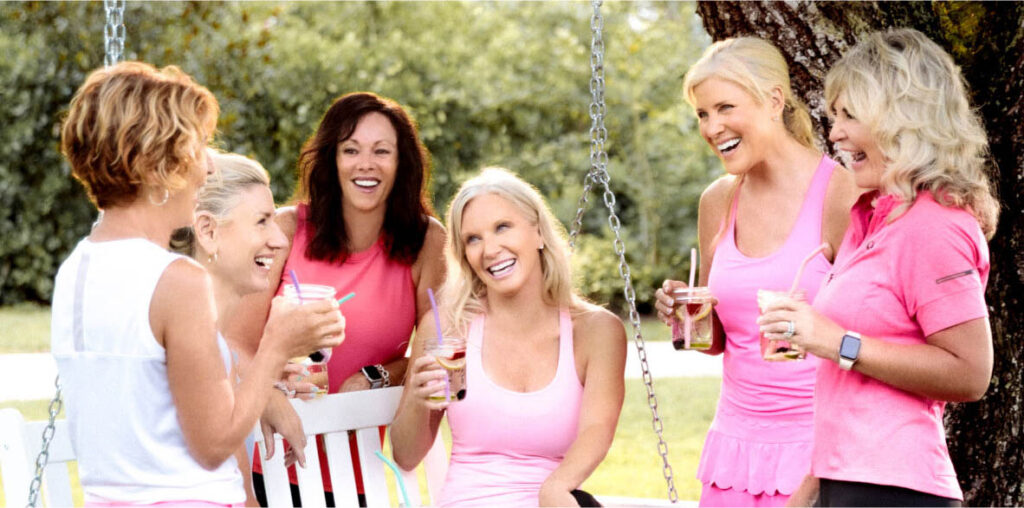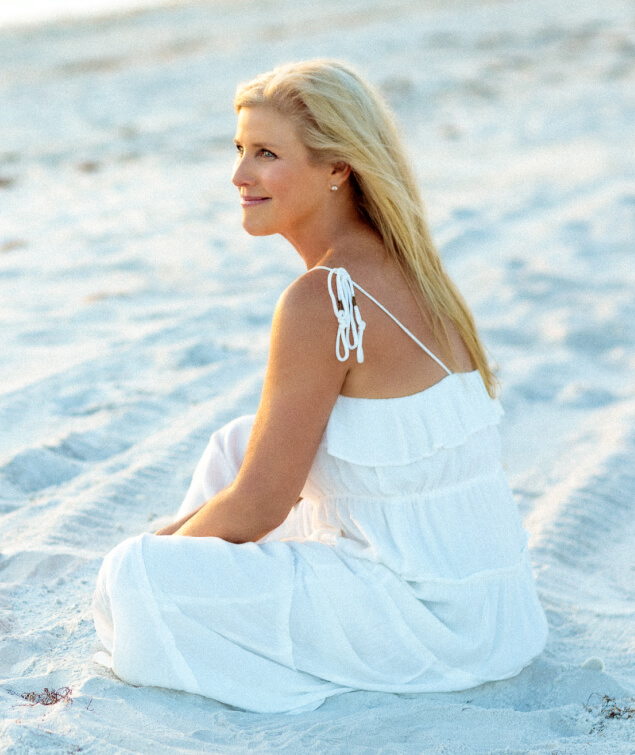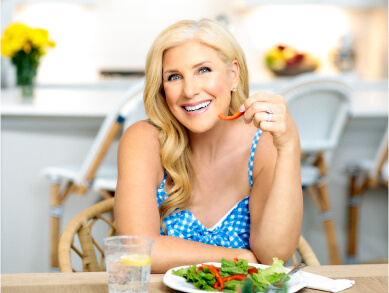Sign up for my 30 Day Kickstart Program
I’m Catherine
As a 13+ year stage 3 breast cancer survivor, I know that true healing goes beyond treatment. I created the Resilience Beyond Cancer framework to help women rebuild their health, reclaim their power, and create lasting protection against recurrence. Whether you’re post-treatment or proactively prioritizing wellness, this is your roadmap to a vibrant life beyond cancer.
Receiving a breast cancer diagnosis feels like the world has shifted beneath your feet. The moment the words are spoken, time seems to slow down, and suddenly, everything that once felt certain is now filled with questions and fear. You feel a whirlwind of emotions—shock, disbelief, sadness, and even anger. There’s a deep sense of vulnerability, as if the very thing that makes you feel strong—your body—has betrayed you. Yet, amidst the uncertainty, a small voice within whispers of hope. It’s a tough road ahead, but you’re not alone. This journey isn’t just about fighting a disease; it’s about rediscovering your strength, leaning on the love of those around you, and learning to take each day one step at a time, no matter how overwhelming it feels.
Breast cancer is caused by a combination of genetic, environmental, and lifestyle factors, although the exact cause in many cases remains unclear. Here are some of the key contributing factors (it’s important to note that many women with breast cancer have no known risk factors, and many women with risk factors never develop the disease):
Sources: CDC and Susan G Komen.
Genetic Mutations: Certain inherited genetic mutations, such as those in the BRCA1 and BRCA2 genes, significantly increase the risk of breast cancer. Women with these mutations have a higher likelihood of developing breast cancer and ovarian cancer.
Hormonal Factors: Prolonged exposure to estrogen, either naturally (such as starting menstruation at an early age or entering menopause at a late age) or through hormone replacement therapy, can increase breast cancer risk. Hormonal changes during a woman’s life can influence the development of breast cancer.
Lifestyle Factors: Factors such as alcohol consumption, smoking, poor diet, lack of physical activity, and obesity can contribute to the risk of breast cancer. Alcohol, for example, has been linked to an increased risk of breast cancer, as it can raise estrogen levels in the body.
Reproductive History: Women who have never given birth or who had their first child after age 30 have a slightly higher risk of breast cancer. Additionally, not breastfeeding or having fewer children can also elevate the risk.
Environmental Exposure: Exposure to certain chemicals and radiation can increase the likelihood of developing breast cancer. For instance, women who have undergone radiation therapy for other cancers, especially during childhood, may have an elevated risk.
Age and Gender: Breast cancer is more common in women than men, and the risk increases with age. Most breast cancers are diagnosed in women over the age of 50.
Family History: A family history of breast cancer, especially in close relatives like a mother or sister, can increase a woman’s risk due to shared genetic factors.
As a 13+ year breast cancer survivor, I’ve lived through the fear, the treatments, and the challenges. Now, as a certified wellness coach, I’ve created a proven prevention framework designed to empower women with the tools and strategies that helped me—and can help you—live a life of wellness and prevention.
My framework is not just based on theory—it’s lived experience. As someone who has faced the battle with breast cancer and emerged stronger, I’m committed to helping other women avoid this journey. My unique combination of survivor insights, nutrition & exercise plans, and professional coaching offers you a deeply empathetic, personalized approach to prevent breast cancer from coming back into your life after treatment.

With my CKP Framework, you will learn how to reduce the chances of breast cancer recurrence. The program gives you hope, support and inspiration for your future. My CKP Framework gives you the opportunity to finally live the life you deserve!

As a breast cancer survivor myself, my mission is to help women with breast cancer prevention. For those who have been affected by breast cancer, my framework will help you find sustainable health and wellness.
The amount of conflicting information out there, anywhere from the overwhelming amount of online sources to well-meaning friends and family, can be downright confusing. Who do you believe?
That’s why I am passionate about providing the most current scientific information as well as what has worked for me, so that I can relieve the confusion and help you get on the right path to wellness.





